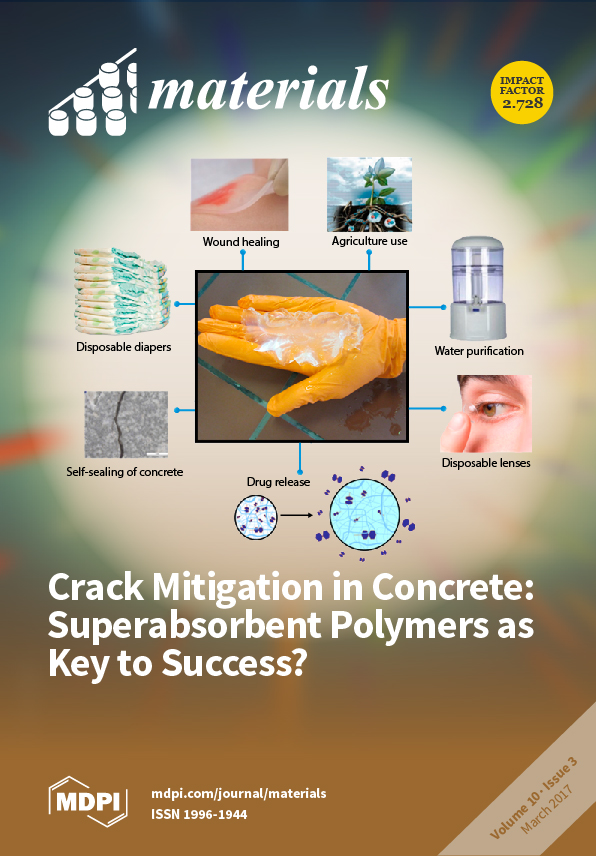Open AccessArticle
In Vitro Evaluation of Dentin Tubule Occlusion for Novel Calcium Lactate Phosphate (CLP) Paste
by
Jen-Chang Yang 1,2, Hsin-Tai Hu 3, Sheng-Yang Lee 2,3,4, Sung-Chih Hsieh 3,4, Pei-Chi Huang 4, Chen-Feng Ma 5, Dian-Yu Ji 3, Liang-Yu Chang 1 and Nai-Chia Teng 3,6,*
1
Graduate Institute of Nanomedicine and Medical Engineering, College of Biomedical Engineering, Taipei Medical University, Taipei 11052, Taiwan
2
Center for Teeth Bank and Dental Stem Cell Technology, Taipei Medical University, Taipei 11052, Taiwan
3
School of Dentistry, Taipei Medical University, Taipei 11052, Taiwan
4
Dental Department of Wan-Fang Hospital, Taipei Medical University, Taipei 11052, Taiwan
5
Graduate Institute of Biomedical Materials and Engineering, Taipei Medical University, Taipei 11052, Taiwan
6
Dental Department, Taipei Medical University Hospital, Taipei 11052, Taiwan
Cited by 3 | Viewed by 5262
Abstract
Introduction: The objective of this in vitro study is to evaluate the effective and long-term occlusion of dentinal tubules using a novel calcium lactate phosphate (CLP) based desensitizing agent. Methods: Dentin disks (n = 9) were pre-etched using 1 M lactic acid for
[...] Read more.
Introduction: The objective of this in vitro study is to evaluate the effective and long-term occlusion of dentinal tubules using a novel calcium lactate phosphate (CLP) based desensitizing agent. Methods: Dentin disks (n = 9) were pre-etched using 1 M lactic acid for 30 s and individually treated with Colgate
® Pro-Relief™ paste, CLP paste, and double distilled water (ddH
2O) by a rubber-cupped handpiece. Dentin disks were analyzed under optical micrographs for pre-treatment, directly after treatment, and 14 days post-treatment. One-way ANOVA and post-hoc Tukey’s test were used to determine whether there were any statistically significant differences in dentinal tubule diameter. Results: A significant decrease occurred in the mean tubule diameter for dentin disks treated with CLP paste. A decrease was observed from 3.52 ± 0.83 µm to 2.62 ± 0.42 µm right after treatment, further decreasing to 1.71 ± 0.45 µm after immersion in artificial saliva for 14 days (
p < 0.05). Conclusions: The results suggest that the CLP based desensitizing paste has remineralization properties and provides instant and lasting effectiveness in dentinal tubule occlusion.
Full article
►▼
Show Figures






